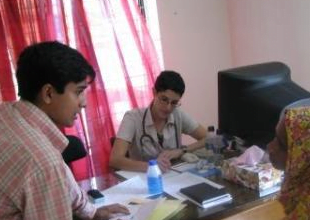Teen pregnancy and sexually transmitted infections (STIs), including HIV and herpes, remain serious problems for U.S. teens.Youth and young adults of color suffer from disproportionately higher rates of teen pregnancy, STIs and other sexual and reproductive health-related problems than other youth in the US. Today’s youth and young adults are no different than previous generations in their desire for information, guidance and services to help them with their sexual and reproductive health. Similar to generations past, they are engaging with traditional networks and services such as friends, family, health and school professionals and non-profit organizations to learn about sexual health. However, the world they live in now is much more complex, filled with multimedia mass communication from thousands of channels, websites and devices.As the first generation to wholly grow up with digital technologies, today’s youth and young adults are more affected and influenced by all forms of media, including traditional forms such as television and music, current technologies such as the Internet, as well as emerging platforms such as mobile phones and social networks. These technologies affect the way youth interact and communicate with others, the way they learn, and in some instances, their attitudes and behaviors (Rand, 2010). In addition, the digital divide has all but disappeared, with little difference in technology usage based on socio-economic status or race/ethnicity. As such, there exists a promising opportunity for youth and young adults to be better educated and serviced in the areas of sexual and reproductive health using digital and mobile technologies.Rapidly growing and evolving platforms such as social media, video games and mobile phones offer promise by complimenting traditional classroom and parent-child sex education. Additionally, some of these digital technologies allow wider reach, quicker, less expensive and more efficient communication of critical health information, and provide easy access to youth-friendly health services. As such, the incorporation of these digital technologies within a multi-pronged approach that incorporates clear, relatable and accessible information and leverages classroom learning and cross-generational communication is projected to positively affect our youth’s sexual and reproductive health, especially impacting underserved youth of color.






